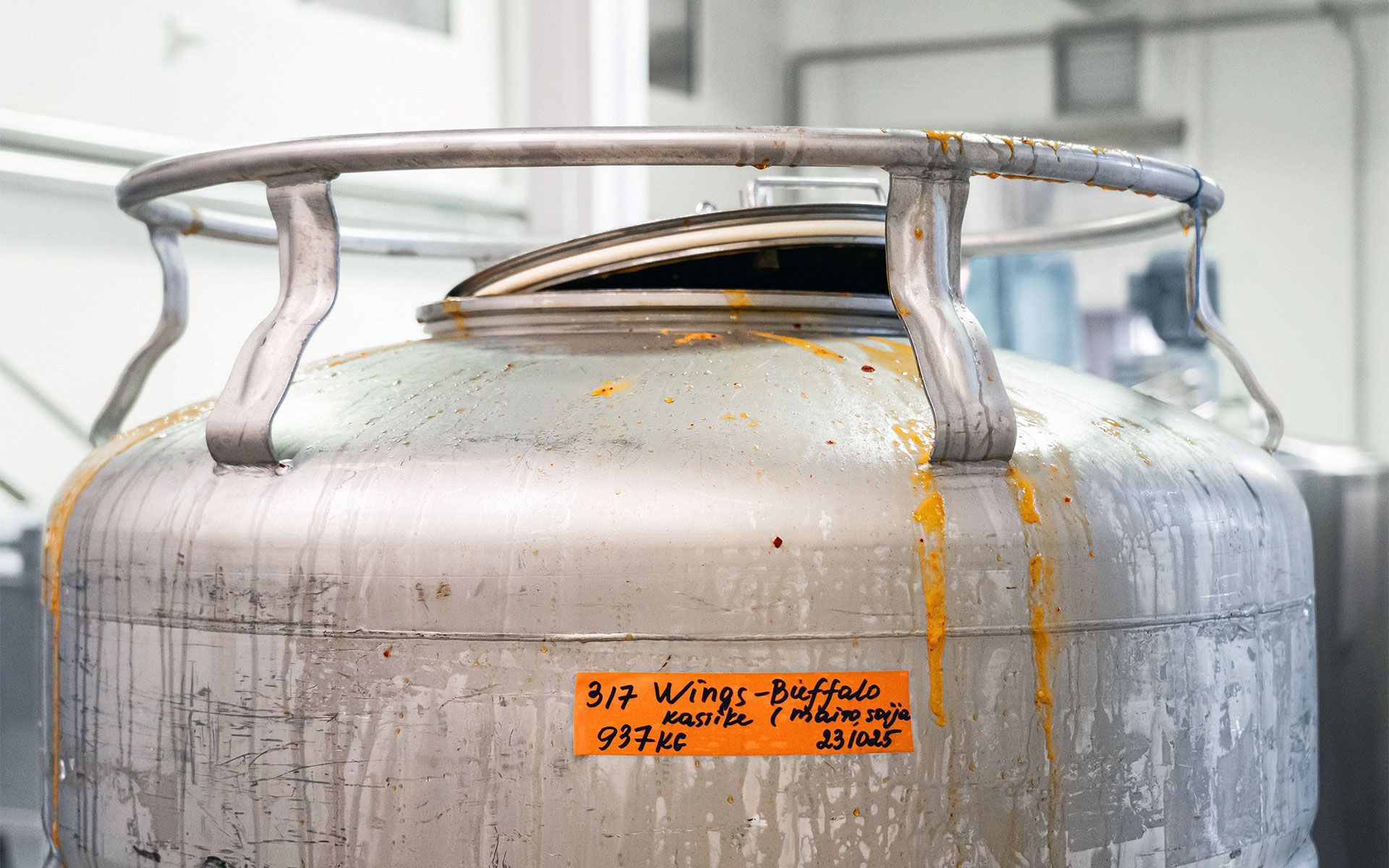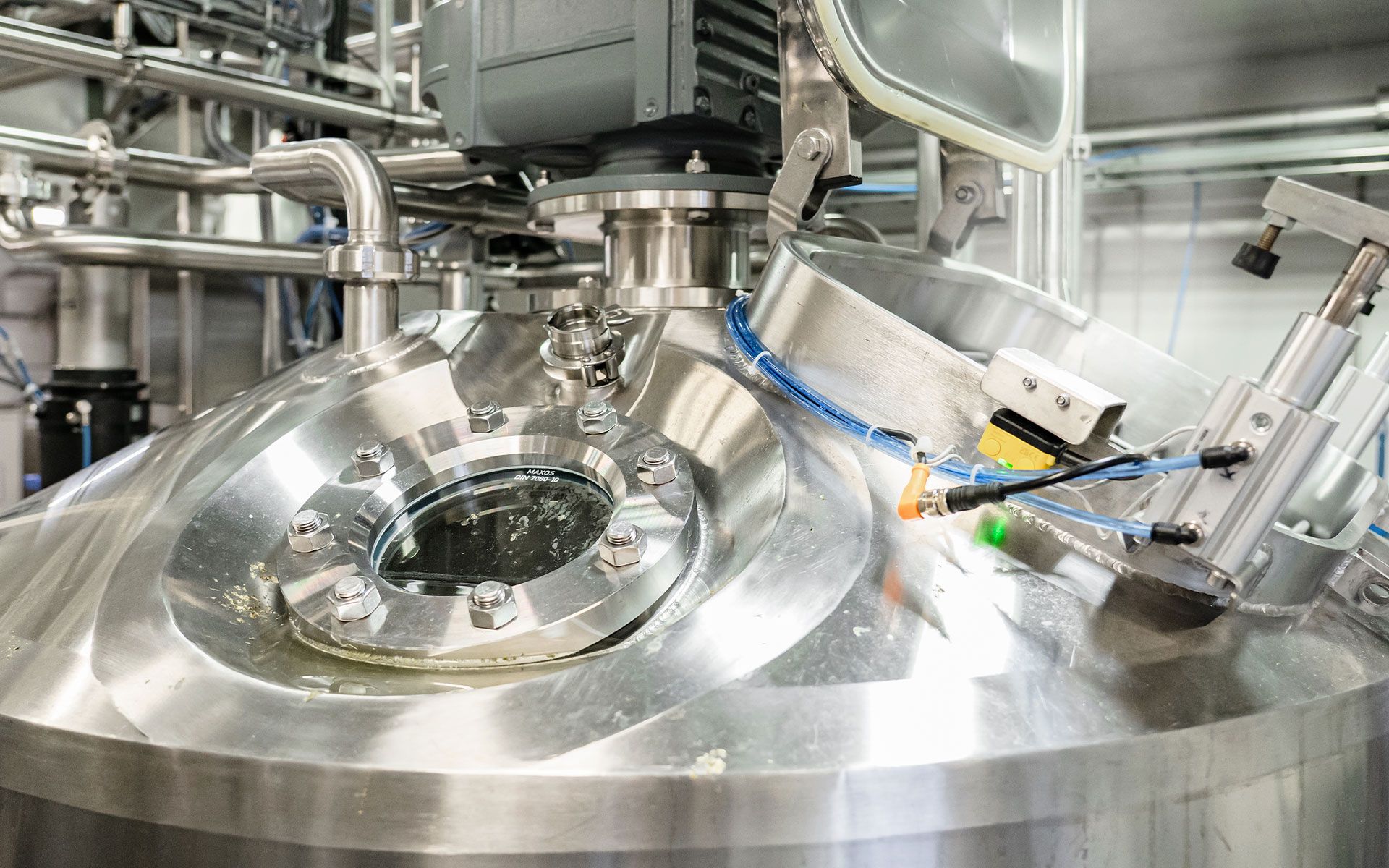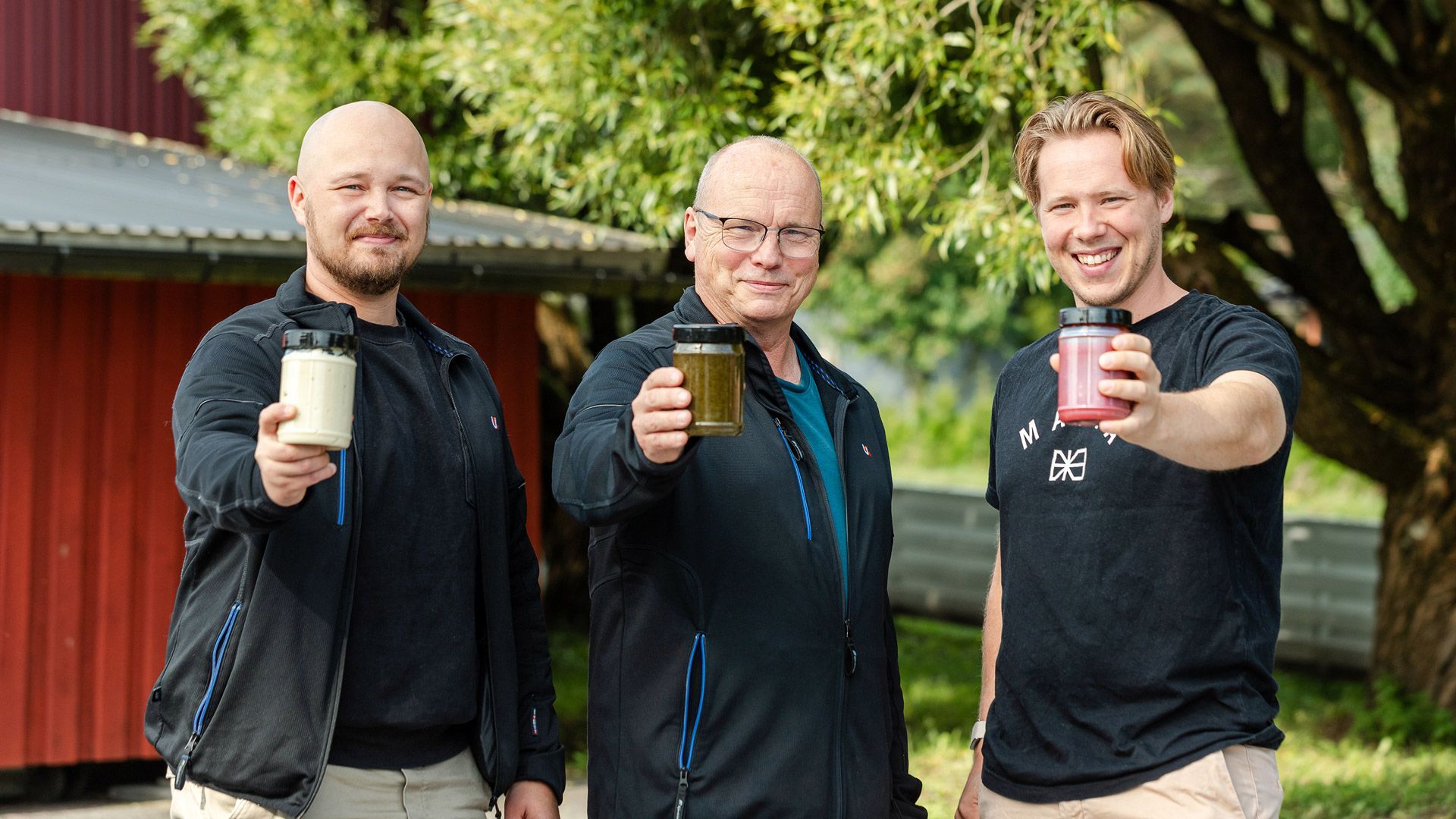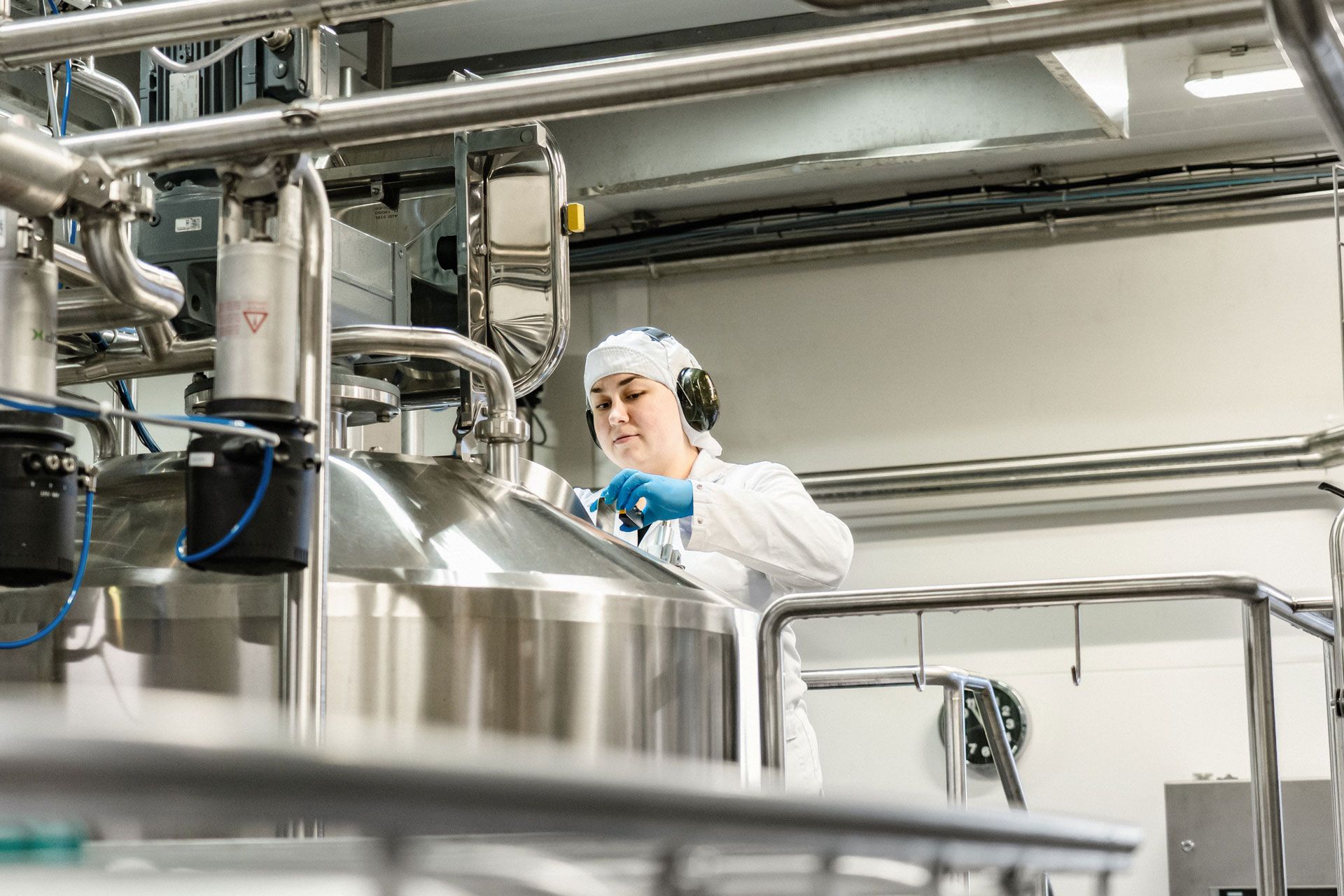Pysy maun tasalla!
Fundamentals of Fermentation and Nutrient Changes
Have you ever wondered why sauerkraut tastes better than fresh cabbage? Or why yogurt feels lighter in the stomach than milk? The answer lies in fermentation, which not only improves taste but makes nutrients more easily utilizable for the digestive system (Tamang et al., 2023). During the fermentation process, interesting changes occur that scientific research has now illuminated in a new way (Marco et al., 2024).
The Biochemical Magic of Fermentation
Fermentation is a natural process where beneficial microbes change the chemical structure of raw materials (Tamang et al., 2023). The change is not merely superficial but extends to the molecular level. During the process, complex carbohydrates break down into simpler compounds, proteins transform into more easily absorbed amino acids, and fats are refined into beneficial fatty acids (Marco et al., 2024).
The fermentation process is thus like nature's laboratory, where millions of microbes work together to transform the structure of raw materials (Roberts, 2024). The change doesn't happen randomly but follows precise biochemical rules. Microbes produce enzymes that break down large molecules into smaller parts, making them more easily digestible and absorbable (Martínez-Villaluenga et al., 2024).
Fermentation is like nature's laboratory, where millions of microbes work together.
The fermentation process itself requires precise conditions to succeed. Temperature, pH value, oxygen and moisture conditions, as well as time determine which microbes gain dominance and what kinds of compounds are formed (Roberts, 2024). In professional and commercial fermentation, these factors are carefully controlled to achieve optimal results in terms of both taste and health effects (Tamang et al., 2023).
Chemical analysis results reveal how fermentation significantly changes cabbage's nutrient profile (Chen & Williams, 2023). During the process, several beneficial compounds are formed, including lactic acid, which supports gut function, amino acids that enhance protein absorption, and plant-based bioactive compounds (Marco et al., 2024). The fermentation process can also improve the availability of certain vitamins, such as vitamin C (Anderson, 2023).
Research Results Speak for Themselves
Recent research has shown that fermented foods appear to have significant health effects, especially on human digestive tract health (Thompson et al., 2024). Fermented products not only support digestion but actively work to strengthen the gut's natural defense mechanisms (Marco et al., 2024).
In a recent study (Dobbyn, 2025), raw cabbage, sauerkraut, and the salt solution remaining from the fermentation process were compared. The sauerkraut samples included both commercial products and laboratory-fermented cabbage. Sauerkraut helped maintain the integrity of intestinal cells, while raw cabbage and salt solution did not. No significant difference was observed between store-bought and laboratory-made sauerkraut.

In other words, industrially produced fermented foods offer the same health benefits as traditional, homemade versions (Dobbyn, 2025). This is a significant finding, as it demonstrates that the industrial fermentation process does not diminish the health effects of products, provided the process is properly designed and implemented (Roberts, 2024).
Industrially produced fermented foods offer the same health benefits as traditional versions.
The research also challenges the common perception that only small-scale produced fermented products are healthy. In reality, industrial fermentation can even improve product quality and safety when the process is closely monitored and optimized microbial strains are used (Roberts, 2024).
Microbiological Revolution in the Gut
The living microorganisms produced during fermentation actively strengthen the intestinal microbiota (Dobbyn, 2025). They function like a probiotic army that strengthens the gut's defense system, enhances nutrient absorption, and increases pre- and probiotic properties (Marco et al., 2024). This partly explains why fermented products have proven particularly effective as digestive supporters (Tamang et al., 2023).
Fermented products function like a probiotic army in the gut.
The gut microbiome is like an internal ecosystem that affects our entire body's health (Thompson et al., 2024). Fermented foods bring new, beneficial microbes to this ecosystem, which can improve microbial diversity and balance (Marco et al., 2024). The effect is not merely local, as it is known that gut health reflects throughout the entire body's well-being (Teerijoki, 2023).
Modern lifestyle with its antibiotics, stress factors, and highly processed foods can impoverish the gut microbiota (Marco et al., 2024). Fermented foods offer a natural way to restore this balance (Tamang et al., 2023). They not only bring new microbes but also nourish existing beneficial bacteria (Dimidi et al., 2023).
Regular consumption of fermented products reduces low-grade inflammation marker levels in blood (Thompson et al., 2024), improves plant protein utilization, breaks down cellulose and polysaccharides, and particularly enhances the absorption of nutritional components from plant-based protein sources (Chen & Williams, 2023). This is an especially important factor for those following a plant-based diet, as fermentation can help them derive more nutritional benefit from plant-based proteins (Anderson, 2023).
Effects of Fermentation on Digestion and Nutrient Utilization
Fermentation affects digestion on multiple levels, creating chain reactions that improve the entire digestive system's function (Tamang et al., 2023):
Guides the digestive tract's microbial composition to optimal: Fermented products act like seeds that sow beneficial bacteria in the gut (Marco et al., 2024). Bacteria compete for space with harmful microbes and can prevent pathogens from attaching to intestinal walls (Dobbyn, 2025).
Improves protein digestibility: Microbes begin breaking down proteins even before actual digestion (Chen & Williams, 2023). Pre-processing makes proteins more accessible to digestive enzymes, which improves the absorption of formed amino acids (Anderson, 2023).
Increases the amount of small molecular peptides: Small protein parts are absorbed faster and more efficiently than large protein molecules (Chen & Williams, 2023). Some of these peptides can also function as bioactive compounds with their own health effects (Zhang et al., 2024).
Accelerates digestion: Pre-digested nutrition moves more smoothly through the digestive tract (Dimidi et al., 2023). This reduces digestive discomfort and improves nutrient utilization (Thompson et al., 2024).
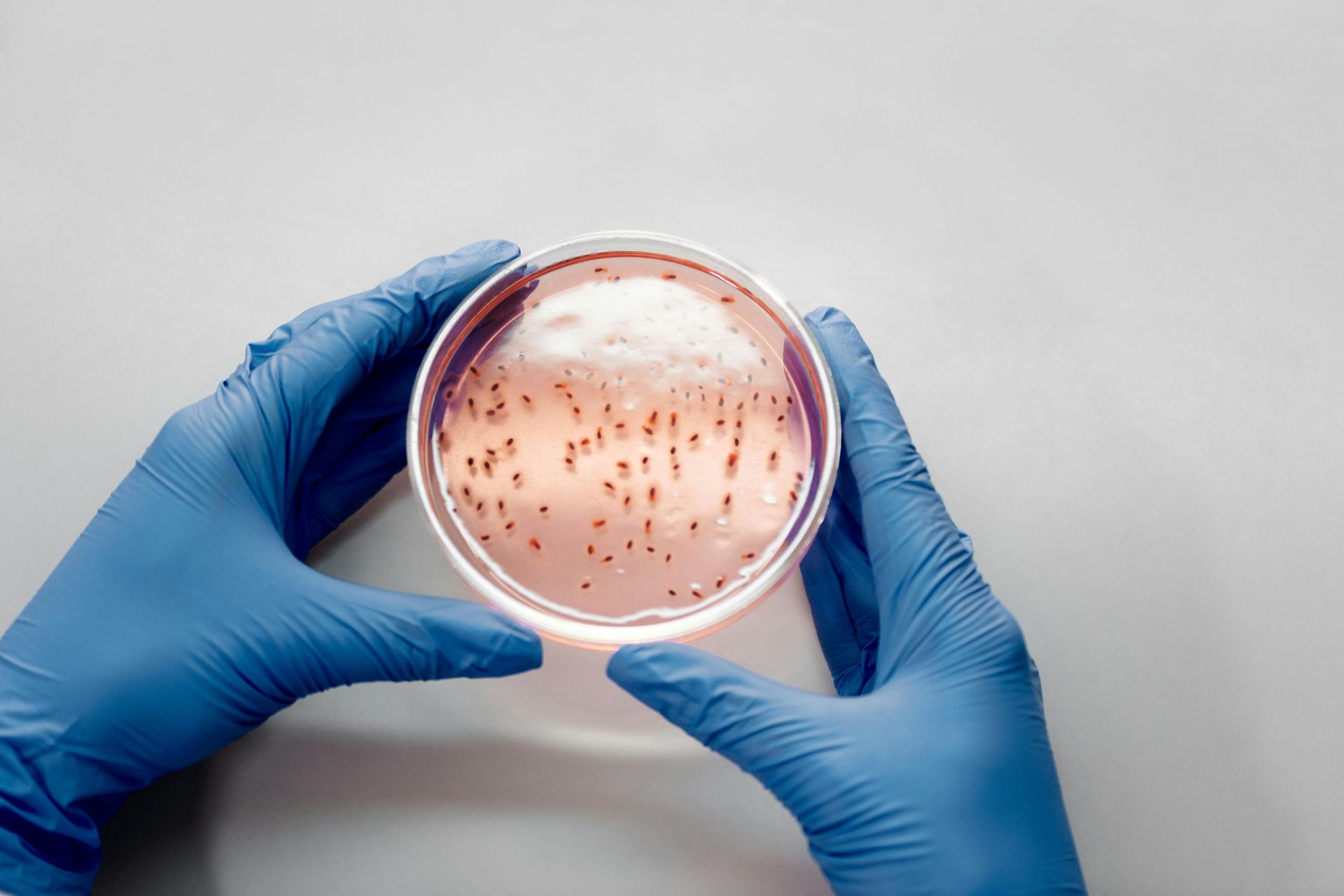
Small molecule solubility accelerates absorption: Fermentation makes nutrients more readily available, meaning the body can utilize them more efficiently (Martínez-Villaluenga et al., 2024).
Breaks down antinutrients into digestively favorable forms: Antinutrients are compounds that can prevent nutrient absorption. Fermentation can modify these compounds or reduce their amount (Tamang et al., 2023).
Reduces allergens potentially contained in fermented products: Breaking down proteins present in certain plant materials can reduce epitopes that cause allergic reactions (Anderson, 2023).
Improves energy utilization: A more efficient digestive process means better energy intake from the same amount of food (Kim & Park, 2024).
Bioactive Compounds Form Naturally
The fermentation process produces abundant small molecular bioactive compounds that have been shown to have various health effects (Tamang et al., 2023). These compounds are not artificial additives but natural products of the fermentation process, formed as byproducts of microbial metabolism (Roberts, 2024).
Antioxidants, whose concentration increases during fermentation (Zhang et al., 2024), protect cells from oxidation and may slow the aging process (Marco et al., 2024). Antioxidants formed during fermentation are often more effective than those in the original nutrient, as microbes can release antioxidants from inside cells or convert them to more active forms (Zhang et al., 2024). The anti-aging effects of fermentation and aging deceleration will have its own comprehensive blog post, where we delve deeper into these fascinating research results.
B-group vitamin content increases significantly during fermentation (Anderson, 2023). They are essential for energy production, nervous system function, and red blood cell formation (Anderson, 2023). Particularly B12 vitamin formation in fermentation is important for those following a plant-based diet, as this vitamin is naturally available mainly from animal products (Tamang et al., 2023).
Short-chain fatty acids and organic acids support gut health and participate actively and as essential parts in the body's metabolism (Kim & Park, 2024). Acids also serve as nutrition for gut cells and can improve the protective mucous membrane function of the intestine (Thompson et al., 2024). They can also positively affect cholesterol levels and blood sugar regulation (Kim & Park, 2024).
Reduction in Allergenicity
One of fermentation's significant advantages is its ability to reduce food allergenicity (Anderson, 2023). The process breaks down allergy-causing proteins into smaller parts, which can make them less allergenic (Chen & Williams, 2023). This is especially important for individuals with food allergies or intolerances (Tamang et al., 2023).
Fermentation can change protein structures so that the immune system no longer recognizes them as foreign (Martínez-Villaluenga et al., 2024). This doesn't mean fermented products are automatically safe for all allergic individuals, but may expand food variety for some suffering from sensitivities (Anderson, 2023). Additionally, fermentation can reduce FODMAP compound (poorly absorbed but fermentable carbohydrates) content, which is beneficial for those suffering from irritable bowel syndrome (Dimidi et al., 2023). Microbes use these compounds during the fermentation process, making products more tolerable for sensitive guts (Thompson et al., 2024).
Fermentation can also reduce lectin content, which can cause digestive problems for some people (Tamang et al., 2023). These complex protein structures can disrupt gut function, but the fermentation process can break them down into ineffective forms (Martínez-Villaluenga et al., 2024).
Possibilities of Industrial Fermentation
atSauce and other pioneer companies are frontrunners in developing industrial-scale fermentation. Industrial fermentation works to improve quality by enabling precise process control and optimization (Dobbyn, 2025). When fermentation conditions are precisely regulated, optimal formation of bioactive compounds and final product consistency can be ensured (Roberts, 2024).
Research on fermentation's health effects today is active, and significant new discoveries are continuously being made (Marco et al., 2024). In the future, we can expect increasingly targeted fermentation processes that can produce compounds promoting specific health effects and thus better quality of life (Tamang et al., 2023).
In upcoming blog posts, we will explore how fermentation affects taste and aromas, and examine practical applications in professional kitchens and the food industry.
References
Anderson, K. (2023). Nutritional Enhancement Through Fermentation. Journal of Food Science.
Chen, H., & Williams, D. (2023). Protein Bioavailability in Fermented Foods. Nutrition Research.
Dimidi, E., et al. (2023). Fermented Foods: Definitions and Characteristics, Impact on the Gut Microbiota and Effects on Gastrointestinal Health and Disease. Nutrients, 15(4), 1023.
Dobbyn, T. (2025). The Gut Health Benefits of Sauerkraut. UC Davis. Available: The Gut Health Benefits of Sauerkraut | UC Davis.
Kim, J., & Park, Y. (2024). Short-Chain Fatty Acids in Fermented Foods. Gut Microbes.
Marco, M., et al. (2024). Fermented Foods and Microbiome Diversity. Nature Microbiology.
Martínez-Villaluenga, C., et al. (2024). Biochemical Changes During Plant Food Fermentation. Applied Microbiology and Biotechnology.
Roberts, S. (2024). Industrial Fermentation and Bioactive Compounds. Food Technology.
Tamang, J. P., Cotter, P. D., & Marco, M. L. (2023). Health benefits of fermented foods and beverages: A consensus statement from the International Scientific Association for Probiotics and Prebiotics. Nature Reviews Gastroenterology & Hepatology, 20, 184-199.
Teerijoki, E. (2023). Suolisto ohjaa meitä. Kehittyvä Elintarvike 4/2023.
Thompson, R., et al. (2024). Anti-inflammatory Properties of Fermented Foods. Journal of Nutrition.
Zhang, L., et al. (2024). Antioxidant Activity in Fermented Products.
Food Chemistry.
Täällä jaamme tuoreimmat kuulumiset, kätevät vinkit, inspiroivat asiakastarinat ja muut herkulliset jutut suoraan meiltä sinulle. Kurkkaa kulissien taakse, nappaa ideoita omaan arkeesi ja tutustu ihmisiin sekä projekteihin atSaucen takana.






